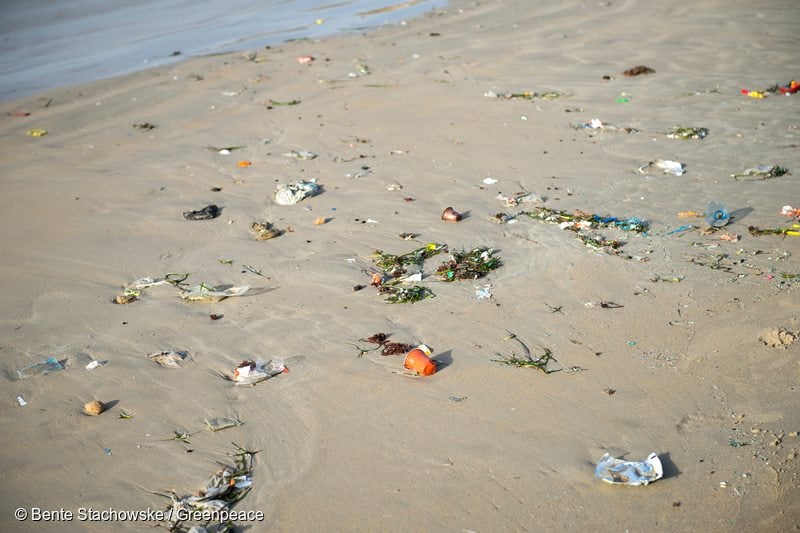Nearly half of all ocean pollution comes from activities that take place on land.

Oil spills and other pollution at sea—while they carry serious consequences—actually account for a small fraction of ocean pollution.
Nearly half of all ocean pollution comes from activities that take place on land, like sewage, industrial and agricultural runoff, garbage dumping, and chemical spills. Another third comes from airborne pollutants, such as sulfur dioxide and mercury from coal-burning power plants.
Pesticide and fertilizer runoff are creating huge dead zones—oxygen-depleted areas where many marine species struggle to survive. The world’s largest dead zone, located in the Gulf of Mexico, is roughly the size of Connecticut.
Plastics in the Ocean
Plastics are another major source of contamination in our oceans. Of the 100 million metric tons of plastic produced every year, about 10 million end up in the oceans.
Plastic pollution comes in all shapes and sizes. Larger pieces make up the Eastern Garbage Patch, a floating whirlpool of trash in the Pacific oceans that’s about the size of Texas. Smaller pieces—like the microbeads in your toothpaste and cosmetics—are choking hundreds of different marine species.
Ocean Acidification
The same greenhouse gases causing climate change are also having disastrous effects on the ocean.
Our oceans are absorbing carbon dioxide, rapidly causing them to become more acidic. This is threatening the habitat of every species that calls the ocean home, particularly vulnerable coral as well as many types of plankton, which form the base of the food chain.

